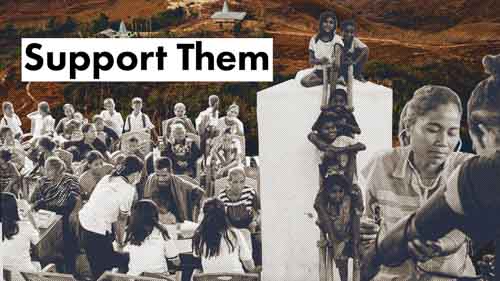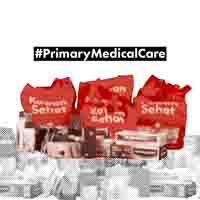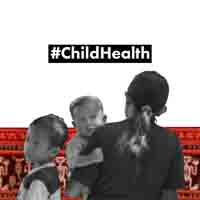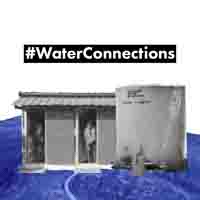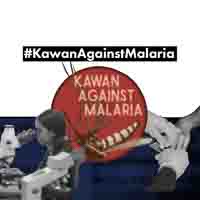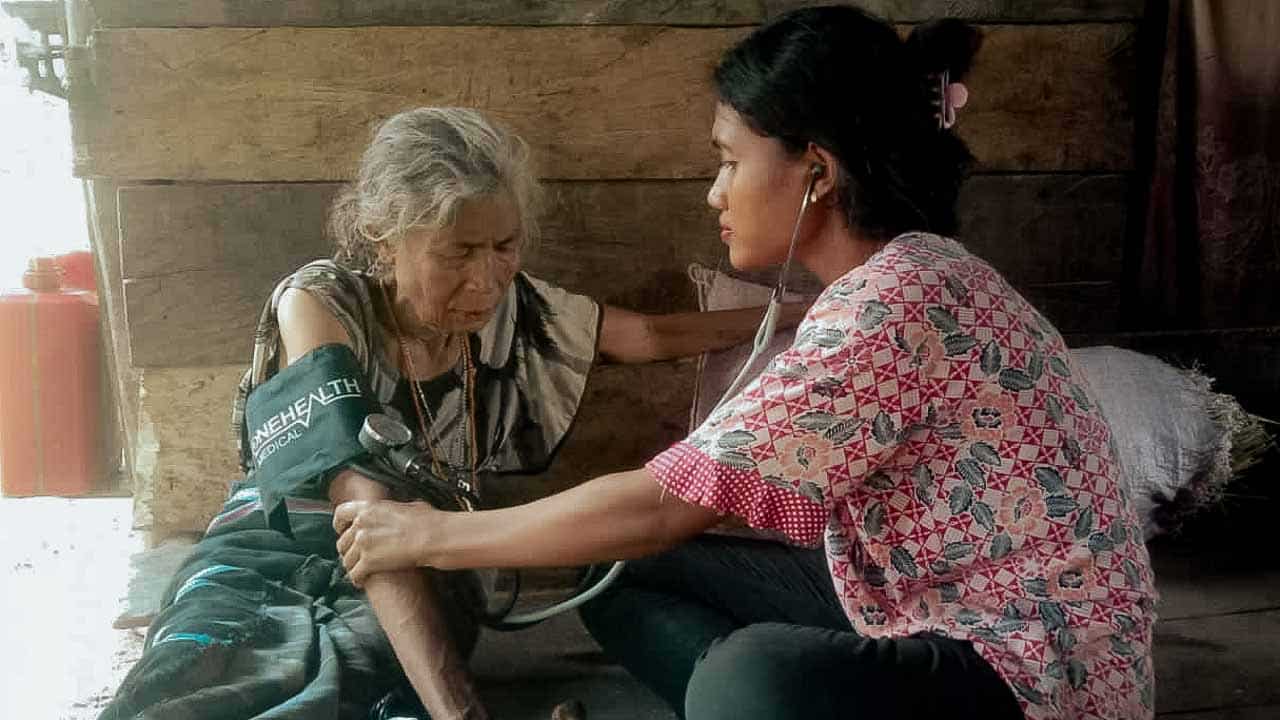Training sixty teachers to deliver primary medical care to children in rural villages.
Our on-site teams have faced intense and emotional days because this program is a world first.a world first.
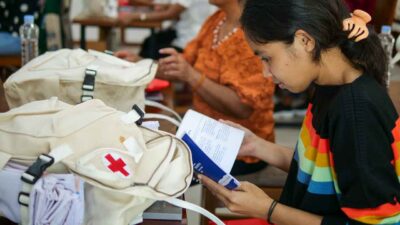
These photos show the training and medical work of Kawan Sehat health agents in remote areas of Eastern Indonesia.
As you may have read, last December, we left with the Truck of Life (the foundation’s medical truck) to bring hundreds of kilos of drugs and medical equipment related to this vital program of training teachers on primary medical care. Indeed, in the event of injury or illness, there are not many other choices than to wait for it to pass. This is the case here in the rural areas where we operate. That’s why we’ve been running this program for years.
These first days of training in December 2022 (with the visit of the Regent-Bupati of Sumba Timur, Khris Praing) aim to give teachers basic knowledge on providing Primary Medical Care (or first aid) in the event of injury or illness. Then coordinate transportation of the victim to a medical facility, if possible. As our teams have been experiencing for nearly fifteen years, in many cases, this saves lives.
All participants learned the immediate application of Primary Medical Care according to a specific type of injury.
For example: Learn cardiopulmonary resuscitation and how to act when choking or losing consciousness. Treating burns, bites and many other things that have already saved lives for a month. But also to make people understand that certain local practices can be dangerous or create more harm than good. First aid kits contain essential drugs such as tablets, syrups, and drops. Our teams taught participants how to give them to children, depending on their symptoms, weight and age.
And since a month since we gave the first training, and since the medical equipment provided by our teams is present and used in the schools of these villages, it should be noted that this program has already borne fruit: it saves lives, and we see it almost every day!
One aspect that we had not taken into account before the start of these days of theoretical and practical training is related to the fact that 95% of the participants are women.
Therefore, this new responsibility we entrusted them is significant recognition and trust. It is now a means of empowering women in these regions. Because they are the ones who today, and perhaps for the first time in the world, are genuinely responsible for providing first aid in their communities. It is something essential and rewarding for them. We feel it very strongly here on the sites.
Setting up such a program requires educational tools to learn and transmit knowledge. Since then, Fair Future and Kawan Baik foundations have produced two books for this medical care program.
These two books consist of the following.
- The first book: “Kawan Sehat”, is made up of twenty tables covering themes for a healthier life for schools in ultra-rural regions;
- The second book: “The first action if there is no doctor”, is composed of fourteen modules of theoretical training and practical exercises, explaining how to act in a medical emergency. It is intended for teachers in schools in rural areas. The latter also follows a several-day training course based on this book.
Note: Click on the two links to view these two publications in .PDF format.
Recognized and visible efficiency every day.
This program is, in our opinion, unique in the world. He is the future for hundreds of thousands of people without access to medical care. It is undoubtedly the first time local health professionals, collaborating with two NGOs (Fair Future and Kawan Baik foundations), train people without medical training to care for injury or illness victims.
And it didn’t take long to get results: The communication group on WhatsApp© that we created to provide help and advice to cases encountered in the villages proved to us the incredible effectiveness of this program.
We wish you a beautiful day wherever you are. Remember to take care of yourself and everyone you love. It is the most important. Alex Wettstein – Fair Future Foundation – 16.01.2023, Rumah Kambera.
List of Related Organizations with Hyperlinks
- Last Mile Health trains rural health workers, much like Fair Future’s Kawan Sehat program, to fight infectious diseases where health services are scarce.
- Malaria Consortium is committed to controlling malaria through evidence-based health interventions and prevention strategies.
- Rotary International supports Fair Future’s malaria programs through partnerships in providing essential medical supplies.
- SolarBuddy collaborates with Fair Future to deliver solar lights, helping to improve education and health conditions in off-grid communities.
- PATH advances global health innovation, aligning with Fair Future’s development of mobile health apps like Kawan Against Malaria.
- WHO Malaria Programme offers technical support and policy guidance for malaria eradication, inspiring Fair Future’s initiatives.
- Kawan Baik Indonesia works alongside Fair Future Foundation to implement life-saving programs in remote Indonesian communities.



